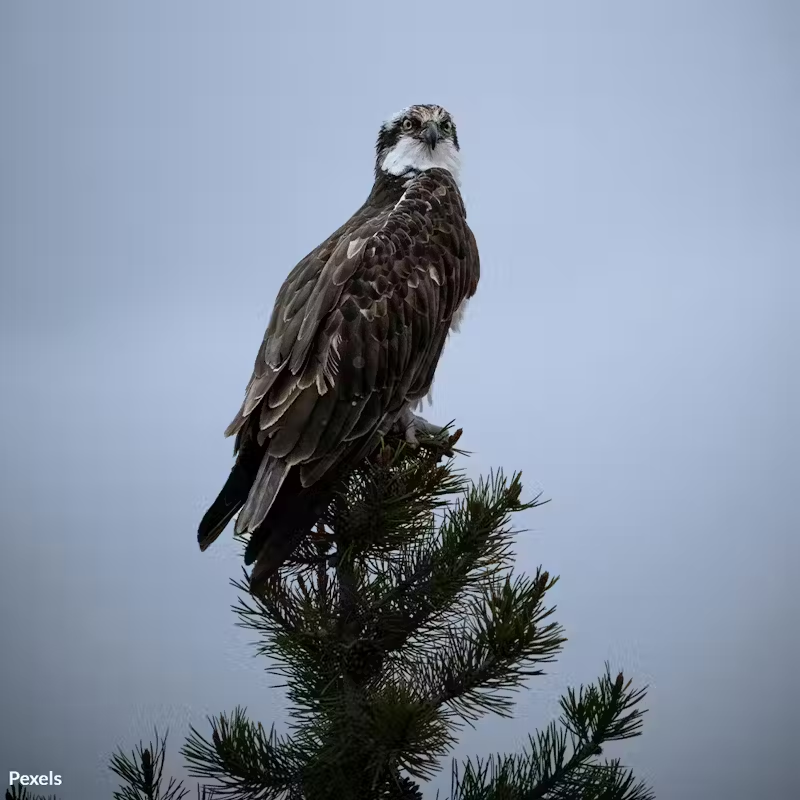Support California’s Ban on Toxic Poisons in Our Wilderness
888 signatures toward our 30,000 Goal
Sponsor: The Animal Rescue Site
California’s wildlife is dying from toxic poisons that threaten our beloved species, pets, and even children. Act now to protect people, pets and the planet!

California’s diverse wilderness, home to some of the most iconic species in the world, is under attack. Not from visible predators, but from a silent, deadly threat—rat poisons. These rodenticides, designed to control rodent populations, are killing much more than their intended targets.
Predators like mountain lions, hawks, owls, and even endangered species are dying slow and agonizing deaths from internal bleeding after consuming poisoned prey.
The Impact on Wildlife and Ecosystems
The impact of these poisons on California’s ecosystems cannot be overstated. A recent study by the California Department of Fish and Wildlife revealed that over 88% of raptors, 80% of large game mammals, and 79% of non-game animals tested had been exposed to these deadly toxins1. This secondary poisoning is not just harming individual animals—it’s disrupting the natural balance of entire ecosystems. Without predators to control rodent populations naturally, the problem only worsens.
A Danger to Pets and Children
This crisis isn’t limited to wildlife. Rodenticides also pose significant risks to pets and children. In 2022 alone, there were over 3,000 reported cases of rodenticide poisoning involving humans, with more than 2,200 of these cases involving children under the age of six2. Pets, too, are falling victim to these dangerous substances, with countless dogs and cats suffering as a result.
Legislative Action: The Poison-Free Wildlife Act
California lawmakers have recognized the urgency of this issue and are taking action. Assembly Bill 25523, also known as the Poison-Free Wildlife Act, seeks to expand current restrictions on rodenticides by adding two first-generation anticoagulant rodenticides, chlorophacinone and warfarin, to the state’s list of banned substances4. This bill builds on the foundation laid by the California Ecosystems Protection Act of 2020, which established a moratorium on second-generation anticoagulant rodenticides (SGARs)5. Despite these efforts, significant exposure to these poisons continues, underscoring the need for even stronger protections.
Empowering Communities to Take Action
The Poison-Free Wildlife Act does more than just ban harmful substances—it empowers communities to take action. The bill includes a groundbreaking provision allowing citizens to pursue legal action against the illegal use and sale of rodenticides, reducing the enforcement burden on state and local officials6. This is a crucial step forward in holding those who endanger our wildlife accountable.
A Call for Safer Alternatives
Environmental groups, wildlife advocates, and concerned citizens are rallying behind this legislation. They argue that the use of these poisons is not only inhumane but also unnecessary. Safer, more effective alternatives exist, such as exclusion, sanitation, fertility control, and trapping, which can manage rodent populations without harming other wildlife or endangering public health7.
Take Action to Protect Our Wildlife
The stakes are high. If successful, the Poison-Free Wildlife Act could serve as a model for other states, leading to a broader movement to eliminate these dangerous poisons from ecosystems across the country. But this won’t happen without public support. The future of California’s wildlife hangs in the balance, and it’s up to us to take action.
You have the power to make a difference. Sign the petition and join the fight to protect California’s natural heritage and ensure a safer, healthier environment for all. Our wildlife, our pets, and our children depend on it.
- Department of Pesticide Regulation Pesticide Registration Branch, California Department of Fish and Wildlife (16 November 2018), "Investigation of Anticoagulant Rodenticides in California Wildlife."
- Shauna Devitt, American Association of Poison Control Centers (18 January 2024), "National Poison Data System Annual Report."
- California State Legislature (19 August 2024), "California Assembly Bill 2552."
- Edvard Pettersson, Courthouse News (14 February 2024), "California Rat Poison Bill Will Add New Restrictions, Allow Public Enforcement."
- California State Legislature (19 August 2024), "California Assembly Bill 1322."
- Animal Legal Defense Fund (28 May 2024), "Poison-Free Wildlife Act (California)."
- J.P. Rose, Lisa Owens Viani, Mike Heymsfield, Center for Biological Diversity (23 May 2024), "California Assembly Expands Protections Against Toxic Rat Poison."
The Petition:
To California State Legislators and the Governor of California,
As concerned citizens, we stand in solidarity with California lawmakers in their ongoing efforts to remove harmful poisons from our wilderness. The use of anticoagulant rodenticides poses a grave threat to our state's diverse ecosystems, leading to the slow and painful deaths of countless non-target species, including endangered predators like mountain lions, hawks, and owls.
The need for oversight in this matter is urgent. These poisons disrupt the natural balance of our ecosystems, causing secondary poisoning that decimates wildlife populations and endangers pets and even young children. We must act with humanity and responsibility to protect the delicate web of life that sustains us all.
By supporting legislation like the Poison-Free Wildlife Act, we can ensure that California’s natural heritage is preserved for future generations. These actions will safeguard our wildlife, protect public health, and demonstrate our commitment to a better, more humane future for all.
Together, we can make a difference. Join us in urging our lawmakers to continue their vital work in eliminating these dangerous poisons from our environment.
Sincerely,